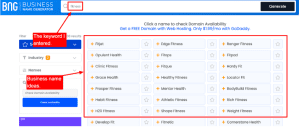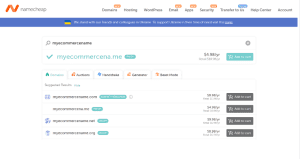How to Get Your Business to the Next Level

Growing Your Business to the Next Level
The world is changing. It’s a new era of business, and the way to be successful is different than it used to be. If you want your business to grow and thrive in this new economy, then you need to think differently about how you do things. In today’s economy, it’s not enough just to have a good product or service. If you want your business to get the recognition it deserves, then you need marketing that can get your name out there and keep people interested in what you have to offer.
Learn How to Market Your Business
The internet has changed the way we do business. It has given us the opportunity to reach customers all over the world and make sure that they are happy with our products. There are different ways to market your product or service. You can use social media, email marketing, or you can even use growth hacking techniques. All of these methods have their benefits and drawbacks, so it is important that you choose the one that will work best for your business.
Marketing is a very broad term and there are many different techniques that can be used to market a business online. There are also many different channels that you can use when marketing your product or service on the internet – social media, email marketing, and growth hacking techniques.
Formulate a Growth Strategy
A growth strategy is a business plan that is designed to achieve the company’s marketing goals and objectives. The first step in formulating a growth strategy is to know your marketing goals and objectives. This will help you determine what type of growth strategy you need to follow, whether it be organic or inorganic. The next step is to identify your target audience, which will help you better understand their needs and wants. The last step would be to identify the channels that are best suited for reaching your target audience.
Create a Solid Product
There are many ways to create a good product. However, the best way to create a great product is to do your research and find out what people want. The second step is to develop that product and make sure it meets the needs of the market. To do this, you may need to learn how. But with the internet, and options like in this Digital Course Academy Review, you can do that. Make sure that you know how to create the best possible offering and get started with it right away.
Increase Customer Engagement
Customer engagement is an important part of the customer experience. This is what builds loyalty to the company and gets customers coming back for more. A good customer engagement strategy will help to increase customer satisfaction, which in turn increases the loyalty and revenue for a business. There are many ways that companies can implement a good customer engagement strategy, but the three main types are customer service, loyalty programs and interactive marketing.
Improving Your Brand Reputation
In order to have an effective branding strategy for small businesses, you need to have a clear understanding of what makes a brand succeed. There are many factors that contribute to the success of a brand, but the most important ones are:
- The uniqueness of the product or service.
- The quality and reliability of the product or service.
- The marketing and advertising strategies used by the company.
- The branding strategy used by the company.
Growing Your Customer Base
In the current competitive marketplace, it is more important than ever to have a customer acquisition strategy. The good news is that there are a number of different ways for startups to grow their customer base and for tech companies to retain their customers.
The best way to start any type of marketing campaign is with your current customers. This can be done by sending them an email asking them about their experience with your company, or by asking for feedback on how you can improve the product or service. This will provide you with valuable information that you can use in your marketing campaigns going forward and help you build a better relationship with your customers.
Be Flexible with Growth Strategy
There are always different strategies for business growth. The first strategy is to do more of what you are already doing, but it may not get you very far. It will often only allow you to maintain the success that you’re currently experiencing. You need to be flexible with your growth strategy and try new things. You need to be flexible with your growth strategy and try new things in order to have a successful business.
Become an Industry Leader
The most important attribute that an industry leader possesses is the ability to stay ahead of the curve. This means that they must be able to identify and act on trends before their competitors do. Industry analysis tools can help you identify and act on trends before your competitors do, so that you can stay ahead of the curve.
Keep on Learning & Growing
The world is changing at an unprecedented rate. To stay relevant, we need to learn and grow. We need to keep on learning and growing. There are various ways we can learn and grow: we can read books, attend conferences, or even take online courses. As long as you’re committing to your long term growth, you should find that it pays off for you.







